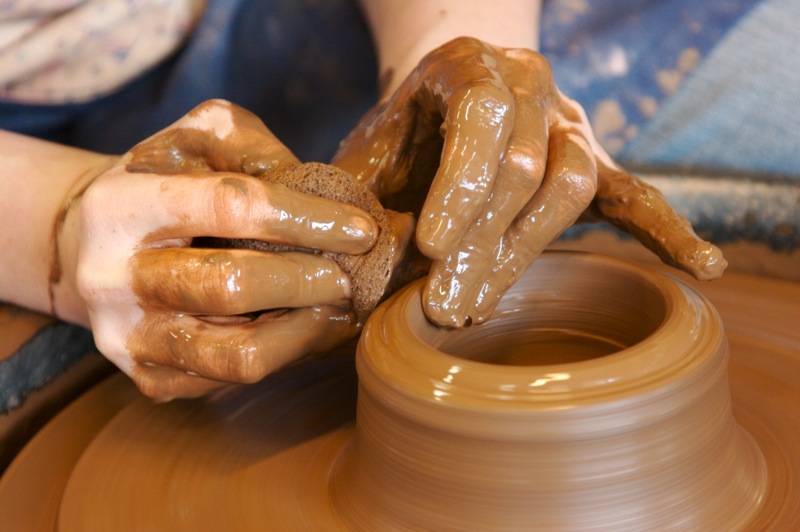
One of the roles of the journalist is to scrutinise the decisions made by politicians and report the implications to the public.
How that relationship plays out is crucial. And journalists need to be bound by strict editorial ethics to ensure that they are not manipulated or used.
The media/political ecosystem is one of checks and balances, truth and falsehood, deception and divulgence.
To complicate matters, human weaknesses creep in. These can range from a simple lack of journalistic professionalism on the one hand, to compromise, complicity, and politically-motivated manoeuvring on the other.
All these elements play out in a complex theatre of events that either leads to an increase in transparency and accountability, or results in manipulation and corruption. The co-existence of the media and politics is rarely simple or straightforward.
The role of the journalist
In democracies, the role of the journalist is supposed to be to inform the public debate so that the audience can make educated choices. The role of politicians is supposed to be to represent those who elected them and ensure that the concerns of that electorate are listened to, considered and, where appropriate, acted upon.
In such a political system, the journalist should act on behalf of the audience to ensure that politicians do their job. The journalist should be exploring and covering the issues that most concern their readers and listeners.
In doing so they should include a diversity of voices and political opinions in order to offer the richest and most complete coverage possible. If they achieve that, they are more likely to offer journalism that enhances understanding and encourages dialogue and debate.
The dangers of compromise
The temptation will always be to befriend the politician. Some journalists might think that by adopting that strategy they are likely to be privy to more information and achieve an advantage over their competition (selling newspapers or winning the air time ratings is also a massive media motivation). But closeness has its dangers.
If a politician is your friend, you may find it difficult to expose them or criticise and write about them in an honest way. So one important question for political journalists is about the distance they maintain from the politicians they’re writing about, and this distance will vary, depending on the state of the political system.
Your duty as a journalist is to ‘shine a light in dark places’ and reveal what you find to the public gaze. The difficulty about keeping your distance from the politicians is a practical one. How far can you go in your reporting? Can you remain free? Can your newspaper or TV station stay in business? Are you in danger?
Starting off with high ideals
As a young newspaper journalist my head was full of the finest editorial mission statements that, to me, justified my existence. I felt I had a responsibility to ‘scrutinise the executive’, ‘hold the powerful to account’ and ‘give voice to the voiceless’.
Each day I would set off with my notebook in my hand seeking out the story that rectified a wrong – in truth, I wanted a really good front page lead that would result in my name being printed on the cover of my local newspaper.
Of course I had no right to do this. I was not elected. I was appointed by my editor to do a job. Often that job was fairly mundane. Trips to the newspaper’s front desk to talk to a woman about a lost dog, attending the opening night of a variety show at the local theatre, or walking along to the local police station to see if there were any crimes left unreported.
However, I was also asked to attend local council meetings where locally-elected politicians were discussing day-to-day issues that had an impact on the lives of those who read my newspaper and my stories. This involved a large amount of preparation. I had to read through council agendas and reports to try to understand the complex language used and figure out what was actually being decided, by whom, for the benefit of whom, and why.
I would try to talk to all sides involved in the issue – those defending the policies and those opposing them. In my conversations and dealings with each group I had to remain fair and objective. It was a small town. Everyone knew each other and where they lived. It had its own peculiar dynamic between the local media and the local politicians – familiarity and accountability – because you would be rubbing shoulders with the same people the following day after the newspaper had hit the news stands.
Realising the importance of the role
Journalists are in a privileged and important position. And it is a position that some will have failed to honour. We can knock on the doors of the powerful and we can pick up the phone and request an interview. Our job has always been to do this as part of our responsibility in society: a free and independent media, digging where others don’t, investigating corruption and wrong doing.
During this career journey I got to know many politicians who became my contacts. They would brief me and would often be available, sometimes at short notice, to help me investigate a story where I felt there may have been wrongdoing. Sometimes they would phone me late at night with a story lead in the hope that I would follow it up.
I was using them for information gathering in order to find good stories for my newspaper, and they were attempting to use me to ensure that issues they wanted aired were not missed, or were at least considered.
With this came a strange, never discussed, perceived obligation. If they helped me as I researched a story which I felt was important to cover, did I, in return, owe it to them to cover those stories that they, the politician, viewed as important – even if I didn’t feel the story they were pushing had any merit? Clearly, the answer is no.
And, of course, if I gave undue prominence to an issue that I felt was not really in the public interest, was I being used by the politician? Clearly the answer is yes.
A balancing act
Working out the fine balancing act that defines the relationship between the media and politics became more complex when I moved to TV and radio at Westminster to cover national and international UK politics. At that time I had a parliamentary patch to look after and my job was to get to know the politicians in the area about which I was reporting.
I soon began to understand how the system worked.
Journalists would meet members of parliament (MPs) for a drink or a meal to talk over ‘background’ information. This was justified as being essential information gathering to enable the journalist to do those insightful (or not so insightful) comment pieces or broadcasting spots where they appear able to offer a depth of understanding about the issue of the day that is not normally available to the man or woman in the street.
However, gradually, the journalist becomes part of ‘the system’ where contacts with politicians are essential for survival. It is a system that is not available to the young journalist starting off. It has to be earned. And here in lies a problem.
Dangers in the political system
My former editor, Bob Eggington, then head of the BBC’s Political Unit, highlighted the challenge faced by journalists living in a country where freedom of speech is protected by the rule of law.
Eggington takes the view that there are dangers in the Western political system where “political journalists are closely integrated into the machinery of briefings, news conferences, press releases and scheduled events set up by the executive.” Eggington says “power corrupts, and proximity to power can be heady and exhilarating.” In this atmosphere, he says, “the journalist must avoid being seduced by the system.”
And that was true in my experience. After some time covering parliament and politics as a TV and radio reporter and correspondent, I was given a lobby pass. This small identity document – about the size of a credit card – gave me access to many areas of the British political scene not available to other journalists.
I became a member of a small group of journalists who were allowed to walk through the corridors where MPs mingle in the Palace of Westminster. I was able to get the occasional ‘off the record’ comments from people who would only be known from then on as ‘sources close to …’. It also gave me access to the regular government press briefings at the Prime Minister’s office at number 10 Downing Street.
For a young political journalist, the day you are ushered through the doors of the Prime Minister’s London residence and into the Press Secretary’s office is an intoxicating moment. At first being able to listen in to conversations off the record was an amazing adrenaline buzz. As Bob Eggington says, the power can be “heady and exhilarating”.
With this introduction to the corridors of power came another pressure – the fear of stepping out of line, and there were enough people around who used that to their advantage. This sinister undertone of control first raised its head early on in my career as a political lobby correspondent when we were being briefed in number 10 Downing Street on a particular government decision. I raised my hand to ask a question about the government’s regeneration plans for my home city. It was a question I wanted clarification on for a report I was compiling.
The ‘censorship’ came not from the government press spokesperson (although his gruff look said a lot), but from an older member of the media lobby who looked at me, shook his head, coughed and moved the questioning on. After the meeting he gently pointed out that it was ‘not appropriate’ to ask such a question in that environment, “not the done thing”.
I was clearly being pulled in line so that from then on I would observe the rules and standards of behaviour that had been previously agreed by both sides. I was left under no illusion that I had offended the rules of ‘the club’ to which I now belonged. The question was how much I valued being part of that club. For some this could be a limiting factor.
From my perspective it was as if I was gradually being sucked into an accepted way of behaving that had the potential to weaken my effectiveness as a journalist through developing a familiarity and understanding with those I was supposed to be reporting about objectively.
It is hard to be tough on a politician with whom you have shared a drink or a meal and who has, in the past, given you valuable information. Familiarity between a journalist and a politician can lead to impotency.
The measure of robust, reliable journalism
When it comes to covering politics, journalists often unearth information that the politicians don’t want them to know. Publishing only the information the politician wants made public is little more than being a press officer.
The real journalist is prepared to risk all in order to print uncomfortable truths, is able to back up their stories with undeniable facts and is committed to exposing incompetence, lies and corruption. In doing so, it is crucial that journalists understand themselves and their own motives, and that they subscribe to and apply a set of editorial ethics that ensure that all they do is done with integrity.
But journalists and politicians are human beings. They all have their own agendas which could be set by ambition, the craving for status and recognition, obtaining wealth, exercising influence, and a whole host of other issues.
The public interest test
For example, in a democracy a journalist has the vote. He or she will probably vote for one party or other. They may have personal experiences that influence that choice. They may have an environmental or social concern that they want to see changed, and they may feel that only one party is committed to achieving that change. This is normal, what is important is that the journalist doesn’t let that influence their work.
All they do must be in the public interest. They must always ask themselves whether the story they plan to cover corrects a significant wrong, brings to light information affecting public well-being and safety, improves the public’s understanding of the big issue of the day, and leads to greater accountability and transparency in public life.
Only by ensuring that the stories covered pass the public interest test can a journalist start to try to fulfil most important role of journalism – to inform the public debate so that the audience can make educated choices. This test also helps the journalist see their own motivation more clearly.
Most of all, a journalist, particularly one dealing with politicians, needs to owe nobody and seek no favours or favourites. They must be totally free of any influences that could be used against them or cause them to compromise their integrity. However, while there remains a danger of ‘understandings’ weakening the power of journalists in so-called democracies, the challenge is far greater in transition and post-conflict societies.
Maintaining integrity under pressure
In those countries where the media is still developing there is a danger of moving too fast. Antagonising politicians and the rich and powerful could result in the journalist disappearing. I have trained journalists who have been told that if they don’t write what their newspaper owner demands they will be out of a job.
These are tough choices. In fact, for some, there is no choice. What is more, there is not always the protection that exists in the West where journalists have the backing of trades unions to support their case if they are victims of unfair dismissal or pressure.
Another difference in the West is that journalists are often taken out and wined and dined by the powerful and influential – in other territories journalists are often taken out by the powerful and the influential with bullets and bombs.
In such a developing media landscape, systems may not have been put in place for the media to operate without hindrance. Old ways of working, often tied into cultural norms, can have a bearing on what happens day to day.
To try to combat this, media training in transition and post-conflict countries often focuses on investigative journalism. This, in my view, is a massive mistake. Of course, all journalism is investigative, but to fill the heads of journalists who are still in transition with ideas about investigative journalism sends out the wrong signals.
What this approach is in danger of delivering is a group of journalists – some who in recent years may have been political activists – fired up to believe that they have a right to investigate former political enemies. With this will come the temptation to seek revenge on those who they perceive as the bad guys from the previous regime who may well now be involved in big business and, almost certainly, politics.
And this is a recipe for disaster. A fledgling media scene with impressionable journalists – many of whom have still to learn the basics of journalism – focused on delivering investigative journalism without first establishing the ground rules for engagement.
This will never help a country or its people develop – and it will certainly do nothing for political/media relations.
Confusing journalism with public relations
The smart politician, in any society, will engage in heavy public relations (PR) offensives to win over and tame certain journalists. And they only do that because they know it often works. Those who are not won over, and who do not belong, can get left out in the cold. The fear of being ostracised is powerful and debilitating; the culture of compliance can be comfortable and extremely rewarding, but not in the terms that define true journalism.
Again, please watch out for the pressure of ‘constructive journalism’ which could be used to manipulate, control, water down and force you to applaud rather than investigate.
According to Premesh Chandran the CEO of the online news site Malaysiakini, which was set up during the rule of Malaysia’s Dr Mahathir bin Mohamad, politicians love the media when the media organisation is in their control, or ideologically within the same camp.
In such cases, Chandran says the media organisation can often serve “to validate political positions” by setting out “facts” which support “political objectives.” Chandran says the result is that journalists trade their objectivity for privileged access to power and politicians.
To break the cycle he says there is a need for “journalists with integrity” and media companies that are “motivated more by principals than profits.” As for the politicians, he says society needs “politicians that are able to put accountability before their egos.”
Shahidul Alam, the Director of the Drik Network in Bangladesh, and a prominent journalist, says there is a clear difference in the relationship between journalists and politicians once a politician enters government. Alam says that when that relationship goes sour the impact on journalism is profound.
The general procedure, he says, is that the opposition politicians consider the media to be their friends, while the government see them as enemies. “This is largely because the media, in playing the role of a nation’s critical conscience, has generally critiqued unjust and unreasonable government policies.”
Alam says exceptions do occur, and both government and opposition “have taken it upon themselves to intimidate journalists when reports have gone against them.” He cites cases where he says “ministers in Bangladesh have been known to publicly announce that journalists are easy prey.”
This has resulted in “instructions being sent to party followers” to “break the bones of journalists”. Alam says that while several have been attacked, “no action has been taken either against the police or against the party activists involved in the attacks.”
The importance of journalistic integrity
Journalists have to realise that, whatever territory they are living and working in, they have a duty to remain removed from those in powerful positions.
The job of the journalist is to scrutinise the executive and hold the powerful to account – and they can only do this if they have integrity.
They need to be as accountable to the audience as the politician is supposed to be to those who voted for them. If they are not, the so-called journalist who is compromised by politics and politicians ends up being nothing more than a deliverer of propaganda or a public relations officer for the politician.
The result is that the public is denied access to the information society requires in order to function in a healthy and fair manner.
This article was commissioned by CIVIL, the Center For Freedom in the Republic of Macedonia following political journalism training in Skopje.








